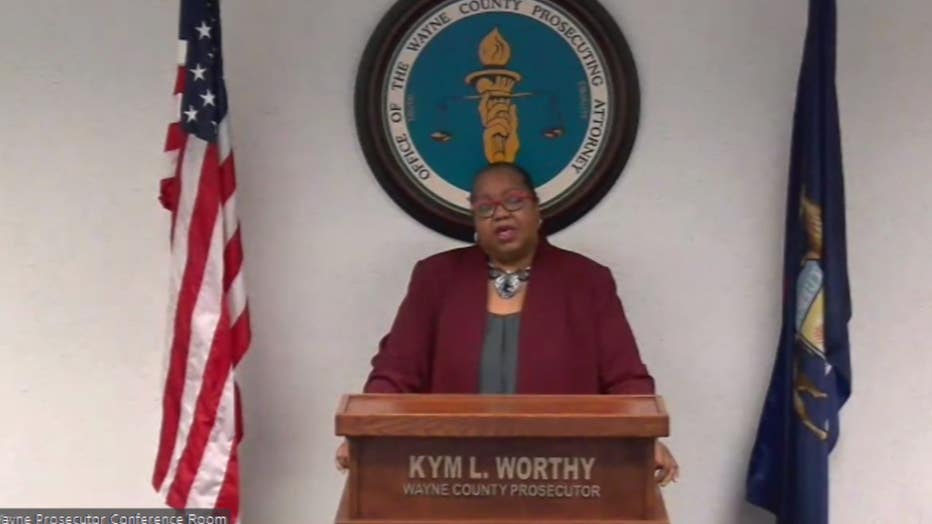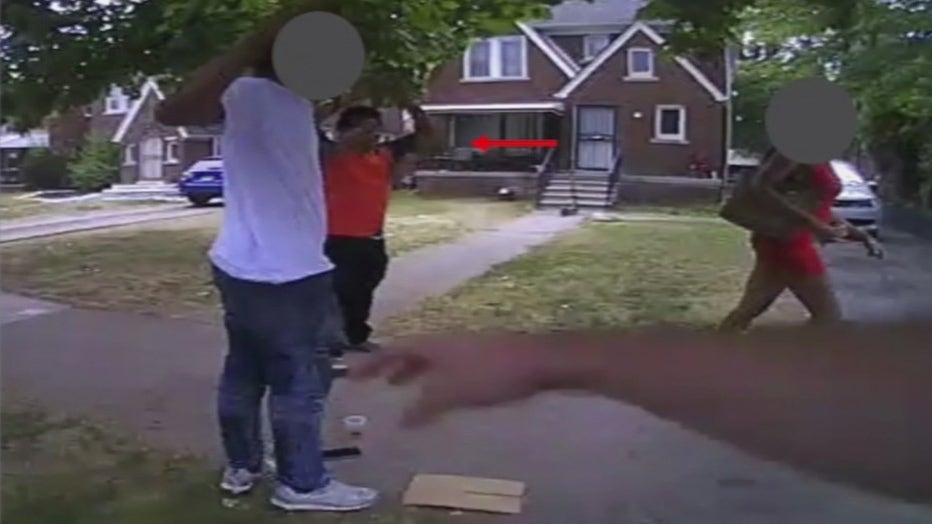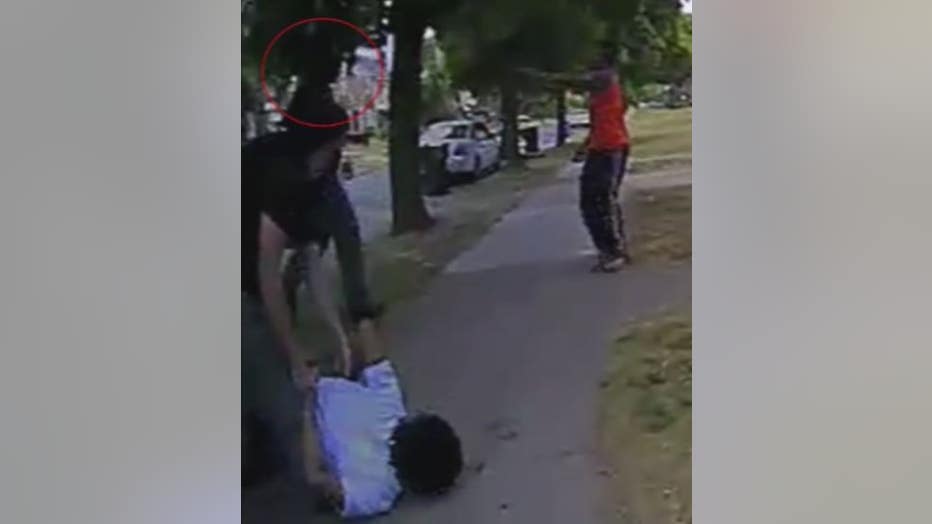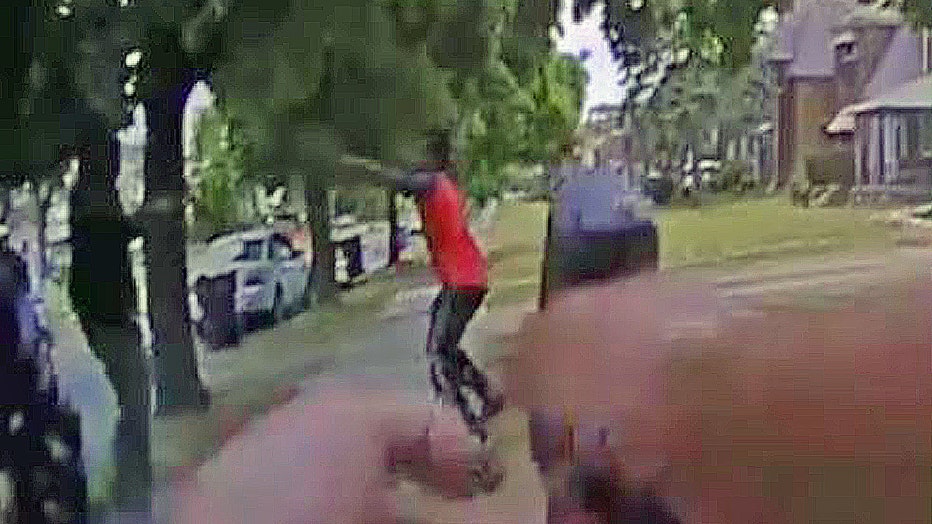No charges in shooting death of Hakim Littleton, Prosecutor Kym Worthy says

No charges after man killed by Detroit officers, prosecutor rules
Video released by the Wayne County Prosecutor shows Hakim Littleton pointing a gun at Detroit Police officers just moments before he was shot and killed by officers. On Wednesday, the Wayne County Prosecutor ruled no charges would be filed against the officers involved.
DETROIT - The Wayne County Prosecutor has declined to press charges in the shooting death of Hakim Littleton, who was struck four times during a shootout with Detroit police last summer.
Prosecutor Kym Worthy said the officers involved in the incident last July "acted in lawful self-defense" when they shot Littleton.
Body and dashcam footage from that day was reviewed from several angles to help Worthy make her determination.
The decision not to arrest comes during a very tense time for police and the communities they serve. As a high-profile murder trial resumes for a former Minneapolis officer, there is a renewed focus on the actions of law enforcement and the killings of Black citizens.
"We have done police brutalities since then and successfully prosecuted them as well," Worthy said in reference to a high-profile trial in Detroit years ago. "But at the same time, we cannot let that deter us from making the right decisions in cases where some people would like to see charges."

The events leading up to shooting
Before police had shot Littleton, they had attempted to make an arrest of a separate individual.
The person was identified as a suspect with an outstanding warrant on July 10. Police had been out on San Juan Street that afternoon when they pulled alongside a car that had people inside it. There were also three people, two men and one woman, who were standing on the sidewalk.
Bodycam footage from one officer shows him approaching a man in a white t-shirt and ordering him to get on the ground. Craig said the man being arrested was related to a narcotics charge.

Before police had shot Littleton, they had attempted to make an arrest of a separate individual.
The person was identified as a suspect with an outstanding warrant on July 10. (Wayne County Prosecutor's Office)
At this time, one officer is walking past the woman in an orange-colored top. Another man, later identified as Littleton, is seen standing off to the side.
Littleton pulls out a gun
Approximately 10 seconds pass from when Littleton pulls out his gun to when the last shot is fired.
As officers are arresting the individual in the white t-shirt, Littleton can be seen with his hand in his pocket. An officer asks to see his hands. At one point, an officer approaching Littleton yells "what the (expletive) you reaching for man?"
That's when Littleton lifts up his left hand and pulls out a small firearm. He fires two shots at the officer, missing both times. That officer did not draw his firearm at that time.
Another officer then pulls out his gun and shoots Littleton twice in the thigh, causing him to fall to the ground. One officer then jumps on Littleton, who still has a gun in his hand.

Footage from one officer shows smoke coming out of the gun wielded by Littleton. (Wayne County Prosecutor's Office)
Littleton is then seen pointing the gun up and attempting to shoot the officer that is on top of him, firing three more times.
"Contrary to what had been reported, the gun had not been kicked away," said Worthy.
Two other officers approach Littleton, each firing a shot. One hit him in the thigh, the other in the head. At that point, Littleton stops moving.
Investigating the case
Worthy said that among the biggest elements of the case was the amount of misinformation that had spread from the initial shooting, quantifying it as "enormous."
During a press conference following Worthy's decision, Detroit Police Chief James Craig said a false narrative was put out shortly after the shooting about if Littleton was armed and if police continued shooting after his gun had been kicked away.
"The message is clear, we refuted the false narrative," said Craig, who said he released the bodycam footage shortly after the incident because of misinformation he said was spread by groups like Detroit Will Breathe.
The WCPO reviewed bodycam footage from two officers, as well as dashcam footage from a squad car. They also interviewed statements from four witnesses as well as Detroit police officers that corroborated the footage.
A beretta .25 caliber handgun wielded by Littleton was also recovered from the scene. Five shell casings from that handgun were located. Shell casings from a 9 mm were also found.
A turbulent summer
The timing of Littleton's death came during mass unrest in America's cities following the death of George Floyd in Minneapolis. The pandemic had raised tensions during an exceptionally turbulent political cycle and election year.
RELATED: Brother of man killed in shootout with Detroit police says family wants justice
But it was during the summers when race was added to the volatile cocktail and the role that police play in communities. There was very little property damage in Detroit compared to other cities, but the presence of unrest was visible for much of June and July.
Then, on Friday July 10, Detroit police had spotted a suspect with an outstanding felony warrant sitting in a car on San Juan Drive in the afternoon. As they were arresting the individual, they noticed an individual walking toward them.
Police were told the person, identified as Littleton, was an acquaintance of the suspect they were arresting. As they went to investigate, Littleton crouched down, pulled out a small pistol.
"The officers were able to try to hold this individual. He then removed a small caliber, 22 caliber blue steel semi-automatic pistol and he began to fire a number of rounds at officer over his shoulder," Chief James Craig said after the incident.
RELATED: Detroit police release graphic videos of man firing on officers before being fatally shot
The shooting immediately sparked protests, prompting Craig to make the extraordinary decision to release bodycam footage of the incident later that day.
But even with the footage, Littleton's family is unconvinced the officers' actions were appropriate.

The timing of Littleton's death came during mass unrest in America's cities following the death of George Floyd in Minneapolis. The pandemic had raised tensions during an exceptionally turbulent political cycle and election year.
"What DPD should have done on that day if they found anything on my brother," said Rashad. "They should have cuffed him, detained him, and then called my mom. And that would have been case closed. Instead, they chose to use deadly force."

